Croatian Trains Made You Late? Here's How to Get Compensation
October the 22nd, 2022 - Have you been made more than an hour late getting into work because of Croatian trains arriving late? You could be entitled to compensation from HZ. Here's how you can get your hands on it.
As Poslovni Dnevnik writes, owing to maintenance works being carried out at this moment in time on the railway section from Okucani to Strizivojna, Croatian trains running along it are unfortunately being delayed by up to 50 minutes at a time. As a result, passengers are also being made late for work, school or scheduled medical appointments. Such people can count on a payout for their lost time.
Croatian trains are often late and therefore so are their passengers. At the station in Slavonski Brod, Marica was waiting for a passenger to arrive from Novska, so far, that passenger is about 20 minutes late, but last time, she explained, it was like this: "They announced that the train would be half an hour late, then it was 60 minutes, then 50 minutes, then 70, in the end it was 60,'' explained Marica from Zadubravlje.
There are still irritated and anxious passengers boarding Croatian trains, but also those who are already for issues to arise and those who are more than used to delays. "It causes issues throughout the day for everything for me when this happens, it's a disaster. This has been going on for some time now, too,'' stated another annoyed passenger, refering to an accident in Novska which be believed caused additional stress and problems.
HZ Infrastruktura (Infrastructure) has denied this. Croatian trains are late, they note, due to the maintenance of the railway infrastructure on the Okucani-Sibinj and Strizivojna-Slavonski Brod sections.
"The accident that happened recently happened between Novska and Okucani. We're working to exclude construction work and that has nothing to do with signalling," said Darko Barisic, a member of the HZ Infrastructure Management Board, on October the 6th, 2022. While the aforementioned works are in progress, Croatian trains will continue to run more slowly and be delayed by around fifty minutes at a time.
Everything should be finished at the beginning of next month, and passengers were asked if they think HZ should compensate them for lost time.
“Well yes, they should. People are being made late for work, what can people do about that?'' they commented.
"HZ Infrastructure must do its work and there will be no compensation", is the message of Darko Barisic, but that isn't quite the case. There is compensation of sorts to be had, but only if the train is delayed for more than an hour.
For a delay of 60 to 119 minutes, compensation is paid in the amount of 25 percent of the ticket price. For delays longer than 120 minutes, compensation is paid in the amount of 50 percent of the ticket price. Along with the request to exercise this right, it is necessary to attach a certified ticket and send everything by post, email or hand it over at the cash desk.
For more, make sure to keep up with our dedicated news section.
Battery Electric Trains to Run Along Croatian Railway Lines
September the 6th, 2022 - Croatian railway lines aren't exactly the subject of many words of praise. In fact, the entire train network and system requires an overhaul of epic proportions and pales horribly in comparison to the rest of the country's public transport offer, which in most respects is very good. Battery electric trains are apparently set to take to Croatian railway lines in the future.
As Poslovni Dnevnik/Darko Bicak writes, although the Republic of Croatia actually does have an extensive network of railways, 635 kilometres per million inhabitants to be more precise, the network is outdated with non-standardised parameters, that is, it only has a small number of kilometres of double-track and electrified railways, and according to many indicators, Croatian railway lines are at the very back of the EU in terms of service efficiency.
With that being said, large investments in Croatian railway lines, trains and overall infrastructure should soon change that, and on that track, the HZ Passenger transport (Putnicki prijevoz) tender has just been announced for the procurement of two battery electric train prototypes and six connections for charging those drive batteries along the country's railway network.
As explained from HZ Passenger transport, the company currently organises Croatia's train network with 60 diesel engine trains that are older than 40 years and whose service life is rapidly running out.
When taking into account this obsolescence and generally large financial investments in an additional electrification system, a logical way thinking and a solution to the current situation is offered by introducing battery electric trains. In this case, this would mean the acquisition of two new train prototypes and the delivery and commissioning of six stable energy connections for charging the drive batteries at locations in Varazdin, Bjelovar, Virovitica, Osijek, Split and Pula.
The battery electric train (BEMV) has a battery that is charged at the terminals, but also along the electrified part of the track as it runs along it, and they would be used on mixed tracks for the destinations Zagreb - Varazdin, Bjelovar, Virovitica and Osijek.
On the other hand, the battery motor train (BMV) is charged only at stable energy connections and would be used along mostly non-electrified tracks on the routes from Zagreb to Split and Pula. The deadline for the delivery of these battery trains to HZ Passenger transport is 20 months from the signing of the contract.
For more, make sure to check out our dedicated travel section.
Another Delay From Zagreb-Split Train: "Sorry, We'll Refund 50%"
August the 1st, 2022 - Croatia isn't known for its high speed, uber efficient train network. In fact, it's quite the opposite, and it doesn't really seem as if anyone quite knows what to do about it. A Zagreb-Split train was recently delayed, one of many of late, by 134 minutes in total.
We've recently had stories about a train driver simply deciding not to turn up to work, leaving passengers waiting around for far longer than they should have, and one about an employee falling asleep on the job, causing issues for yet another train. Will it ever get better, you might ask?
As Morski writes, the Zagreb-Split train carrying passengers was due to arrive in the Dalmatian port city on Friday at 15:20, but instead, it arrived 134 minutes late. Croatian Railways (HZ), who have been having to do an awful lot of explaining lately, says that the problems started when the train's air conditioner malfunctioned at 16:10 at the train station in Karlovac.
''Given that the bus operator couldn't provide the three buses needed to transport the passengers sitting on train 523 within 60 minutes, a second unit was sent from Zagreb Central Station, which left Karlovac station 92 minutes late, and then arrived at the Split train station with a 134 minute delay,'' they stated from Croatian Railways.
The train which has ended up being faced with issues and delays is otherwise a recently introduced line that runs from Osijek to Split, and it is, it seems, very regularly late.
Croatian Railways will refund all passengers 50% of their purchased ticket price.
Croatian Railways apologised to the passengers on the Zagreb-Split train and told them that they are free to exercise their right to compensation for the delay.
In case the train is delayed from 60 to 119 minutes, compensation is paid in the amount of 25% of the original ticket price. And if, as is the situation in this case, the delay is longer than 120 minutes, compensation is paid in the amount of 50% of the ticket price, as reported by Index.
For more, make sure to check out our dedicated lifestyle section.
Croatia in 2027: What Will the Country Look Like in 5 Years?
July 20, 2022 - Life in Croatia is mostly about remembering the past or living in the present, but when it comes to the future, what is it going to be like for Croatia in 2027? An overview of the things that will shape the country in the next five years.
It has been 31 years since Croatia declared its independence from Yugoslavia, 27 since the end of the homeland war, and 11 years since it completed its accession to the European Union. For those who have closely followed the development of Croatia as a country in those years, as well as those who were unaware of it, the feeling of surprise is shared. Objectively, the vast majority of people I know have expressed their amazement at the growth of Croatia when they see my photos and videos on Instagram, or when they read my articles on this portal. Some may consider them clueless, but the truth is that many believed that Croatia was just another country in Eastern Europe, torn apart by war and struggling to recover.
Few imagined that Croatia is currently one of the main tourist destinations in the world, with leading technology companies such as Rimac, or one of the safest countries on the planet. Many countries in the world have also gone through bloody independence processes or intense armed conflicts that have left them on the brink of economic, political, and social abyss. But with a population of no more than 4.7 million in 1995, Croatia's growth and development have been remarkable. Although it is worth mentioning the international support received in the last three decades, the resilience and determination of its population have been indisputable pillars in this process.
The country continues to go through constant changes, and some, in particular, seem to be decisive in speculating on what awaits around the corner. Just as we look back to analyze the evolution of the country, the positive and negative of its present, we ask ourselves, what lies ahead for Croatia in the next five years? We go over a few things to see what Croatia will look like in 2027.
Euro currency
This Monday, Croatia began producing its euro coins, which will enter circulation from January 1, 2023, replacing the kuna. As part of its accession to the European Union in 2011, among the conditions was the eventual change of currency to the euro, and last year the Croatian government announced that it would take place in 2023. Despite a strong rejection by the part of the population, in recent months this change has received the green light from different institutions such as the European Commission or the European Central Bank. Change is inevitable, and today some supermarkets are already displaying the prices of their products in both kuna and euro currencies.
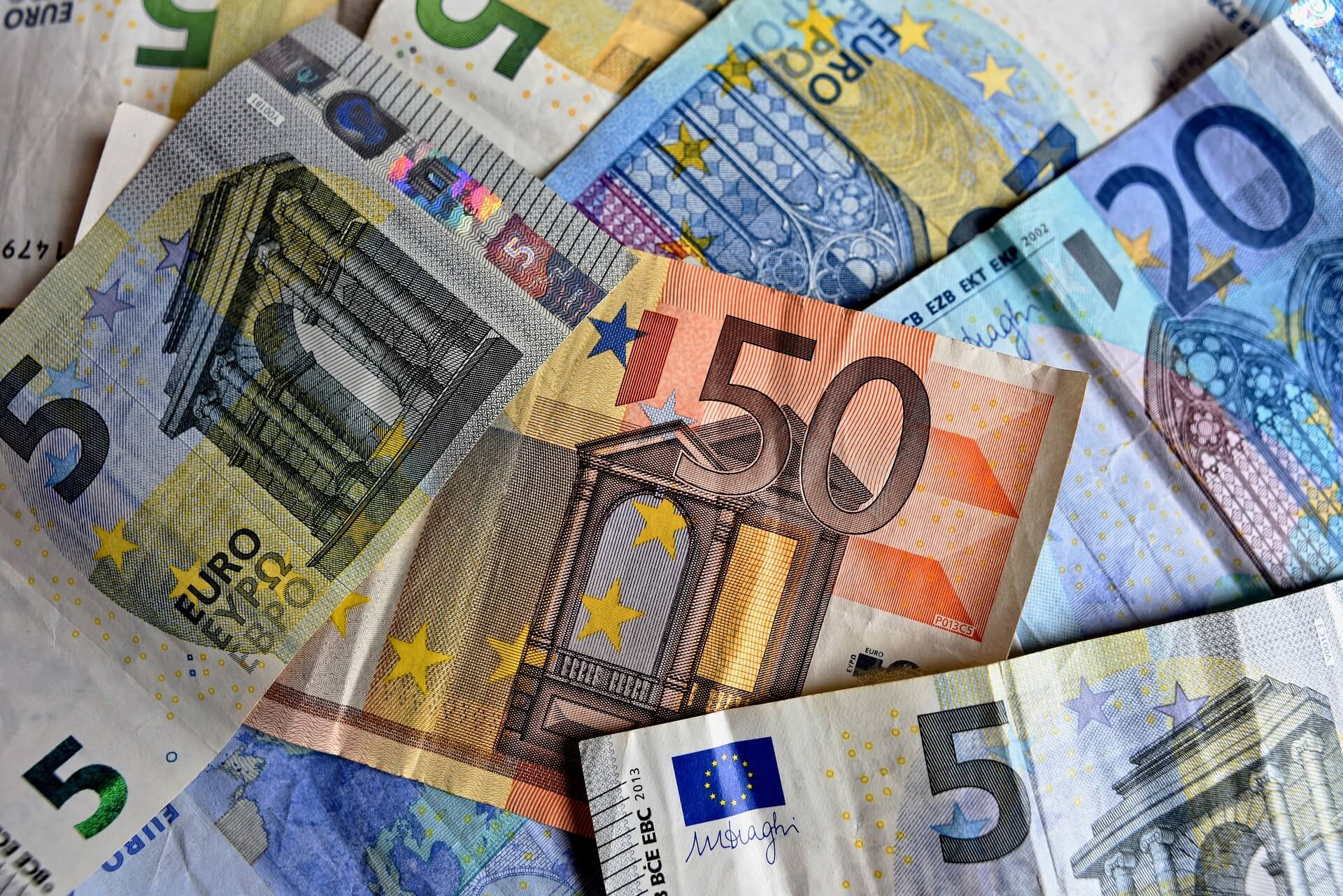
Image: Pixabay
Opinions are diverse. There are those who welcome the arrival of the euro as a way to strengthen economic relations with other powers on the continent, others believe that it will not affect the country in a positive or negative way, and many believe that it will plunge the country into a crisis and radically raise the costs of living. How will Croatia fare in the future with the euro as the new currency? Only a seasoned economist could dare to speculate, but perhaps it is the expectations that matter. In a country plagued by an imbalance between salary conditions and the cost of living, the European Union is expected to require Croatia to match the standards of other member states in the future. Changes in the prices of basic products and services, or the shift from using more coins instead of bills, are considered by many to be minimal changes compared to other macroeconomic trends, but they should still be considered in the first years and in what way it will affect the middle-class Croatian citizen and those mired in poverty.
The comparison is daring, but countries like Italy with the lira, France with the franc, Spain with the peseta, or Germany with the mark, had to go through the process of change that at first was confusing for many, but today, almost twenty years later, it is part of everyday life in those countries.
Schengen area
On June 29 of this year, the Council of the European Union formally initiated the process of admission of Croatia to the Schengen area, currently composed of 26 European countries. In previous years, many political leaders on the continent expressed their support for Croatia joining the Schengen area, and finally this year a vote will take place in October in which 22 member states (with the exception of Switzerland, Iceland, Lichtenstein, and Norway as they are not members of the EU and do not have voting rights) will decide on Croatia's accession. Once approved, Croatia will become the 27th country to access the benefits of such admission, in the same year that it will adopt the Euro as its currency.
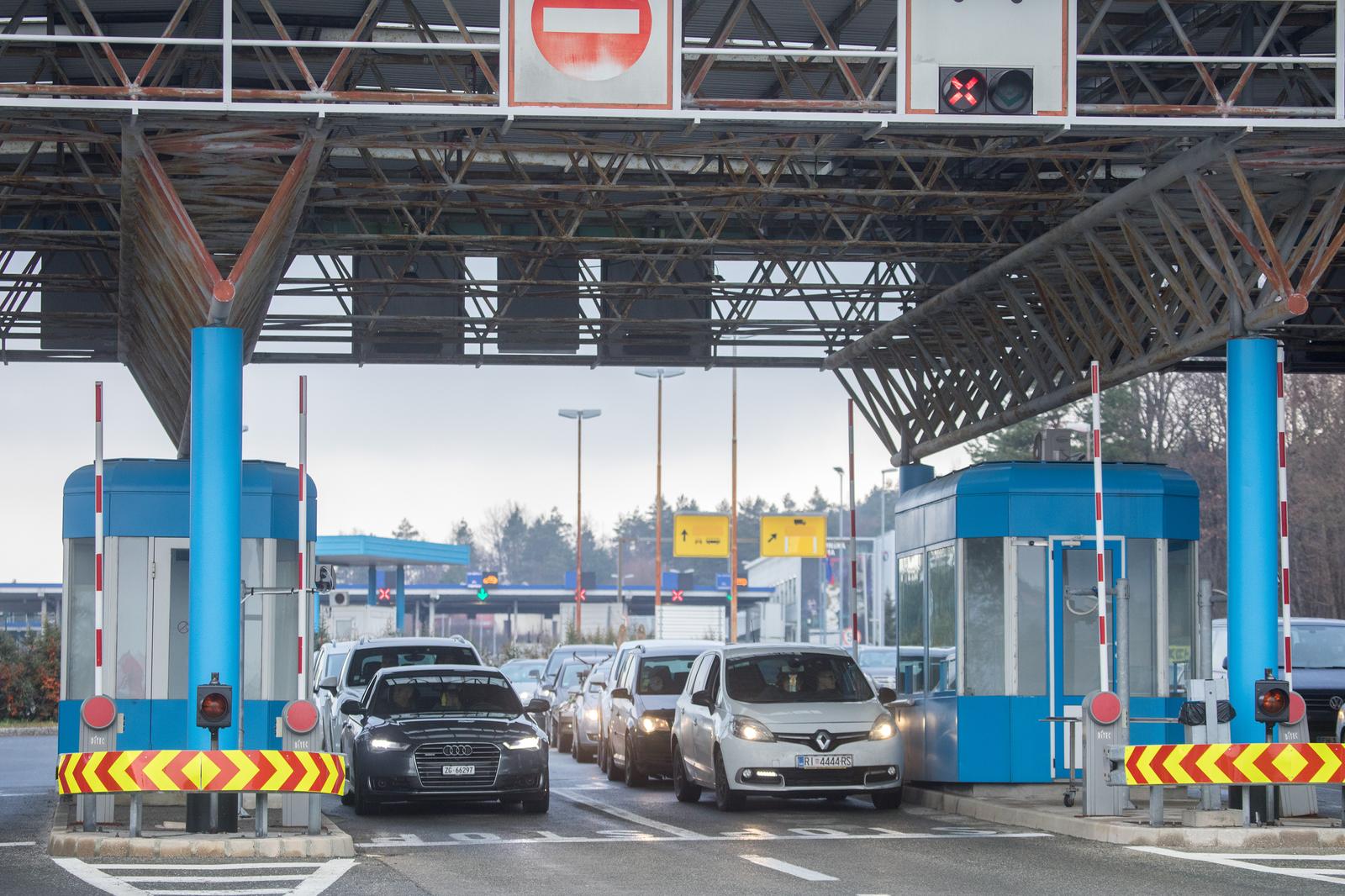
Photo: Nel Pavletic/PIXSELL
Should there be no unforeseen obstacles, all kinds of border controls will be lifted in Croatia starting on March 26, 2023, which will simplify travel to and from Croatian airports, sea ports, and land borders. For instance, passengers traveling from Croatia on direct flights to destinations in the member states of this area (26 European countries), after checking in for the flight and security control, will go to the exit for their flight without crossing the border or police control. This change is expected to have a positive effect on tourism trends in the coming years, especially in a country like Croatia, with a large annual presence of visitors from countries such as Slovenia, Germany, Austria, Denmark, Poland, Sweden, and the Netherlands during the summer season.
Croatian trains
Unfortunately, unlike the previous two points, when it comes to the future of trains in Croatia there is still no revolutionary project announced. Although it is true that the sad reality of the trains in the country was already known, in recent weeks various news have been published that make it even more evident. From poor connectivity between cities to excessive travel times, to even drivers who were late for sleeping at home. Bus travel and airports continue to support the local and international transport market in Croatia, but expectations for a better train system are rising with time. Tourists and local users alike expect train travel to be modernized, and soon.
The geography of the country is not an excuse since other rugged countries such as Italy or Austria have most of their cities and towns connected to each other by very fast and modern trains. Time will tell whether Croatia decides to modernize its existing lines in the next few years, or whether it decides to add more trains connecting coastal cities as well as from west to east. At the moment there is no clear horizon, but it is an urgent issue.
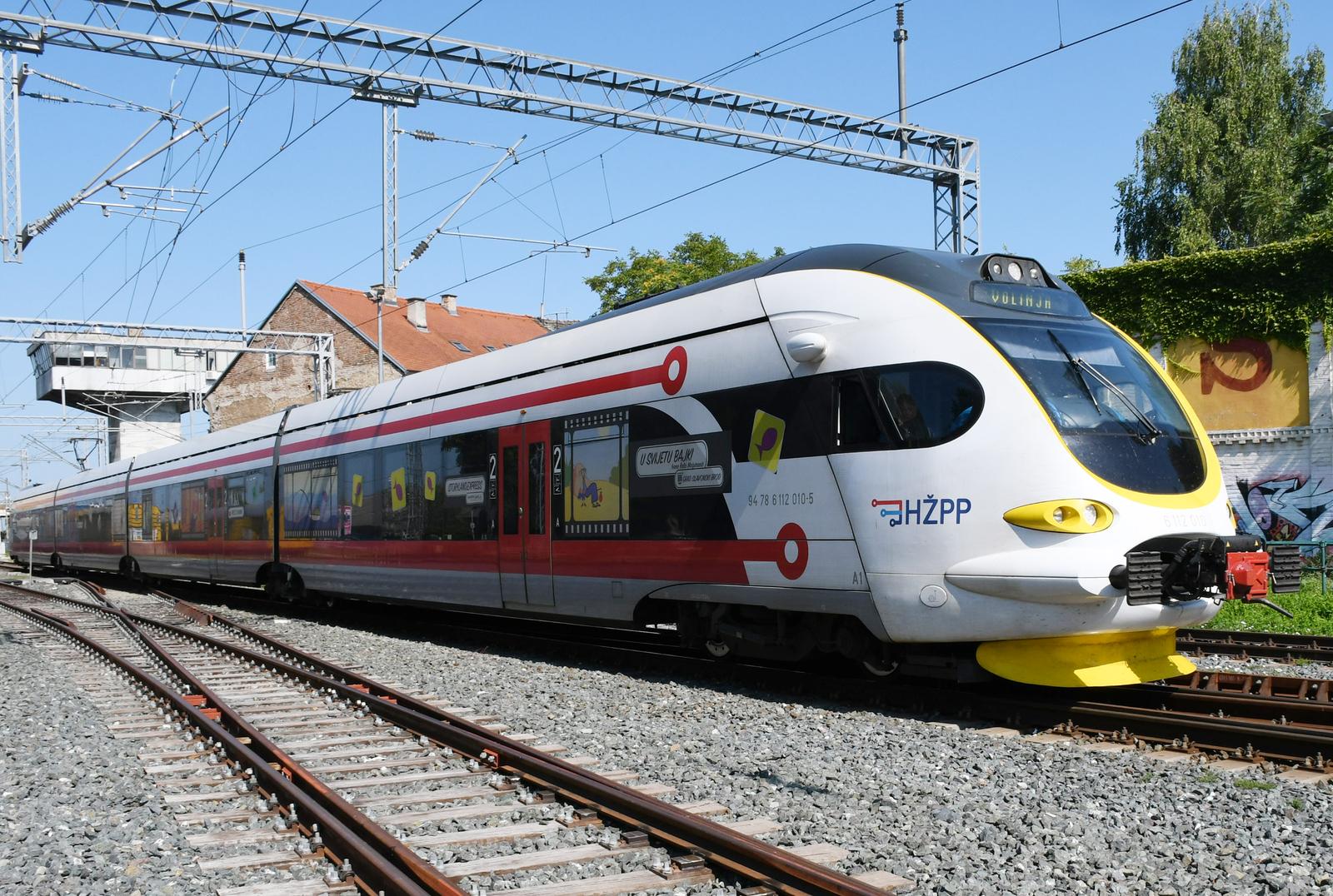
Photo: Nikola Cutuk/PIXSELL
Population
The most recent census was conducted last year, and the results raised a lot of eyebrows. Much has been said in the last decade about the never-ending phenomenon of migration of young Croatian professionals in search of better job opportunities in other countries on the continent, or even outside Europe. However, the situation seems to have worsened even more and this has been manifested in the last official count of the country's population. The youth of the country continue to look abroad once they receive their degree, and there are plenty of reasons considering the low wages and the limited job offers.
Some blame the ease for Croats to migrate to other European countries due to their membership in the EU, but the truth is that it is becoming increasingly difficult to convince a Croat to stay.
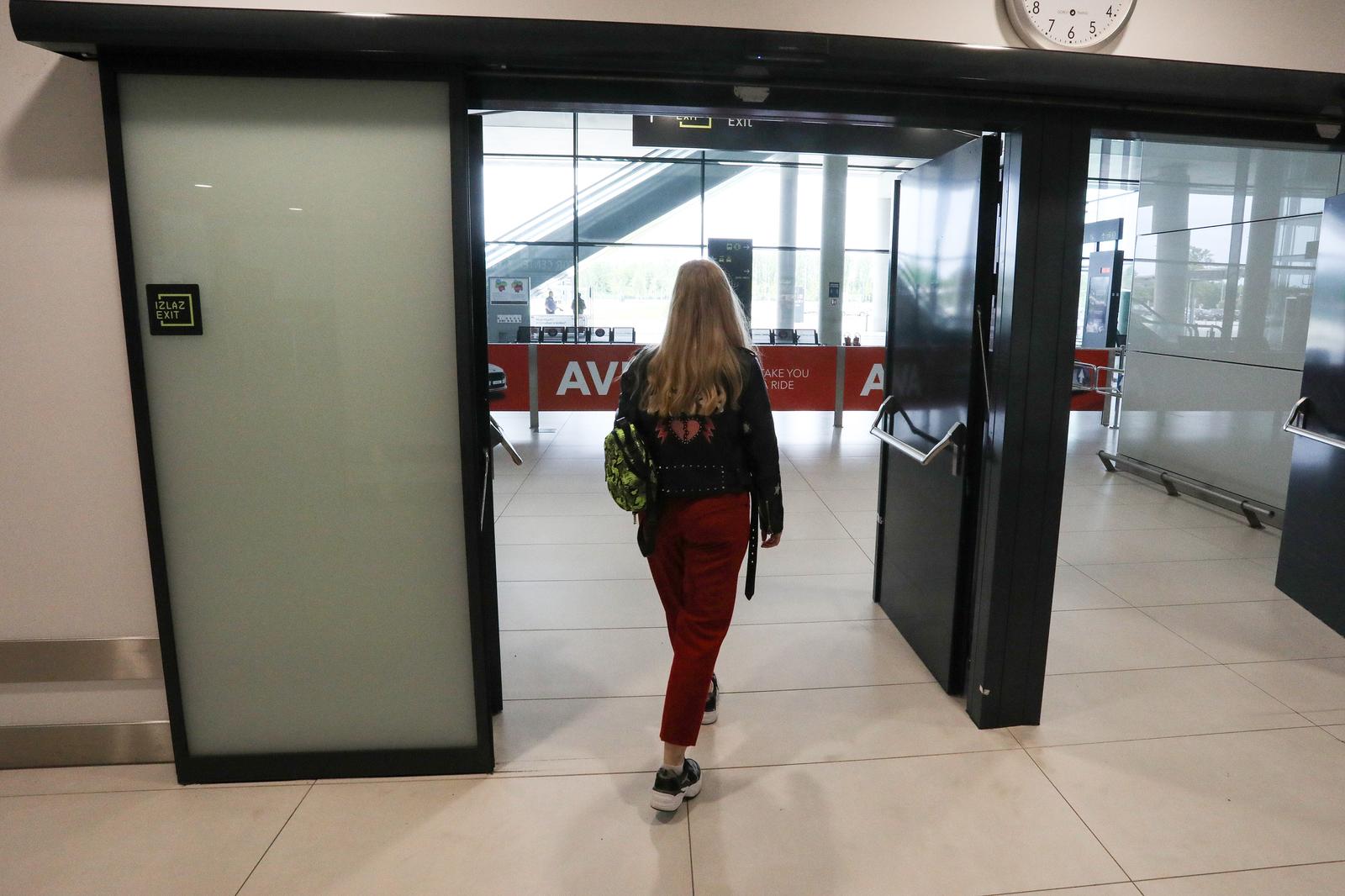
Photo: Borna Filic/PIXSELL
If the cost of living in the country manages to find a balance over time with salaries, labor supply, and working conditions, it is likely that the trend will reverse, but for now one can only speculate. On the other hand, it is important to recognize the increase in Croatian citizenship applications by citizens who belong to the Croatian diaspora, especially those who come from South America. The current situation in several countries of the South American continent, such as Argentina or Peru, has motivated young people and adults to bet on a change of scenery, with a great willingness to take on the challenge of repatriation and offer their skills in Croatia. It has always been talked about how it is that the majority of the Croatian population lives, in fact, outside the country, but this factor must be seriously taken into account in the coming years, which would also invite us to think about a more diverse Croatian population.
Tourism
The COVID-19 pandemic has made many in the country reflect on the enormous dependence of the Croatian tourism industry on international flights. Everyone involved in the tourism sector was deeply affected: hotels, restaurants, tour agencies, tour guides, private accommodation owners, transport companies, and more. Likewise, citizens who dedicate themselves entirely to tourism have felt a severe blow to their own economy, realizing that those two or three months of income should not be so essential for them in order to survive the other nine months of the year. The name of the game for the next few years is diversification.
The public and private sectors have to come together to look for alternatives, even if a chance of another pandemic is unlikely. Istria, for example, showed the importance of being a destination that can be reached by car. Likewise, it is necessary to bet on tourist offers during the winter, especially in a country that boasts good weather and cultural events throughout the year. This and more will help the country stop depending so much (and dangerously) on the summer months.
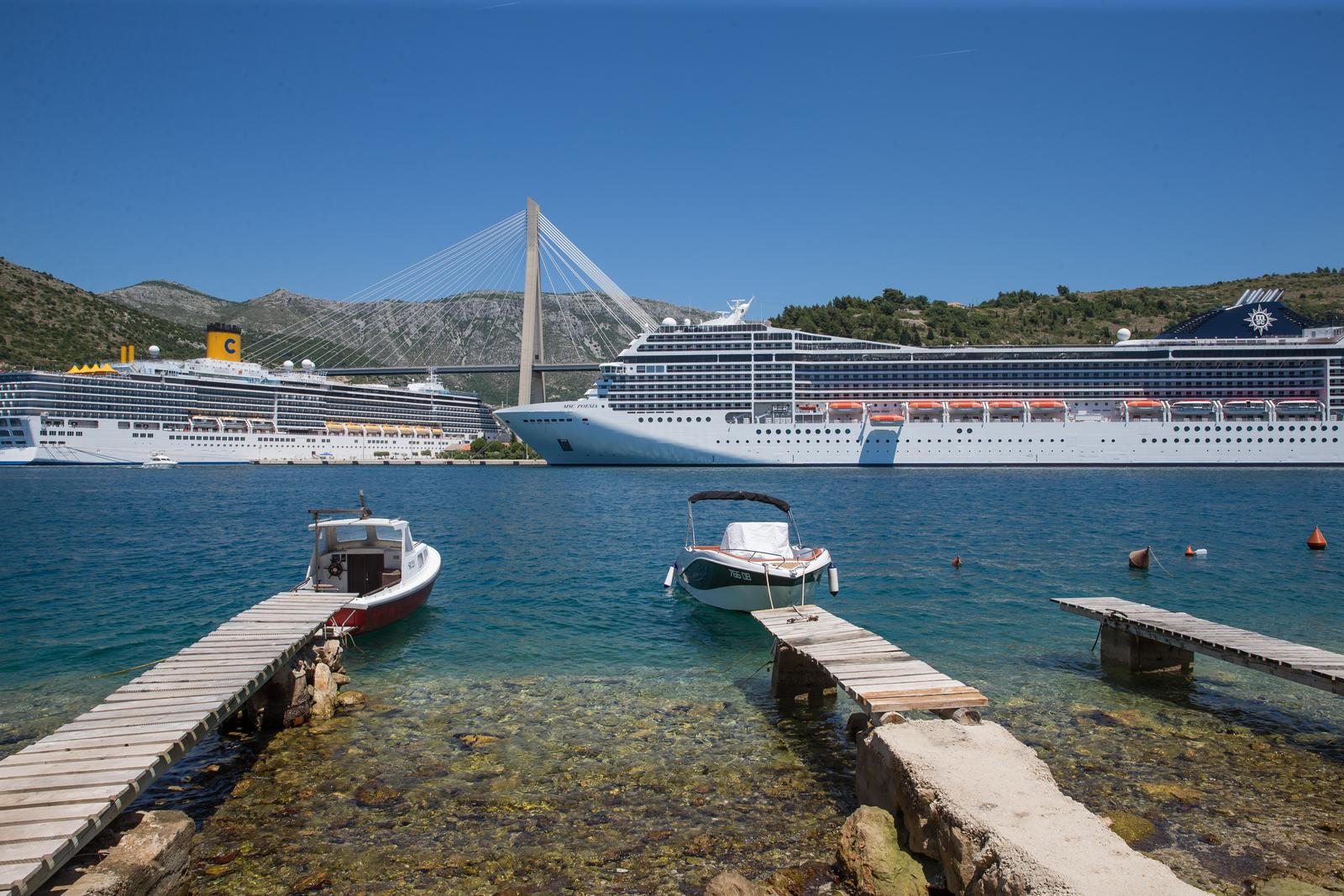
Photo: Grgo Jelavic/PIXSELL
Another issue to consider is overcrowded tourist destinations during high seasons, such as Split or Dubrovnik. While it may not sound like much of a concern to those in the tourism industry, the truth is that at the end of the day, tourism is all about experiences. The experience of not being able to walk down an alley in the old town, not having a place to lie down on a beach, not finding an available table in a restaurant or exaggerated accommodation prices can only be a negative and will affect the promotion of the country in the short term, if they are not already doing so. Limiting the arrival of cruise ships, regulating private accommodation, and promoting other tourist destinations more strongly should be some of the goals that the tourism industry, both in the public and private sectors, should set for improving the quality of the tourist experience in Croatia in the next years.
For more news about Croatia, click here.
Croatian Railways: Seventy Brand New Trains Due Before Year 2024
June the 30th, 2022 - Croatian railways aren't usually praised by many users of their services, with complaints about the trains being slow frequent and even situations in which the train drivers not bothering to turn up for work occurring. Could all that change with some new acquisitions?
There is an enormous amount to see all over this extremely geographically diverse country, which, while small, packs a punch from the sparkling Adriatic Sea and its impressive rugged coastline to its imposing, karst mountain ranges, luscious green rolling hills, picturesque lakes and seemingly endless Eastern vineyards. Seeing it all by train would be the preferred choice of many if things ran a little more smoothly, and it seems like that's going to happen.
As Poslovni Dnevnik writes, recently, the Minister of Maritime Affairs, Transport and Infrastructure, Oleg Butkovic, visited the Koncar factory hall in which brand new electric trains are being produced as part of the project entitled The Reconstruction of the Croatian Railways (HZ) Passenger Transport fleet.
The new trains are being co-financed from the Competitiveness and Cohesion Operational Programme 2014-2020 in the amount of 85 percent, and the total estimated value of the project stands at a whopping 1.29 billion kuna.
Croatian Railways is continuing modernising its entire fleet with eleven brand new electric trains for urban-suburban transport and ten other new electric trains for regional transport, and by the year 2024, it should have almost seventy new trains in use across the country, which makes up more than fifty percent of the current fleet.
These brand new and much more modern trains set to take to Croatian railways will reach a speed of 160 kilometres per hour and will be equipped with ramps for people in wheelchairs, and there will also be proper bicycle space and free internet access for passengers.
For more, make sure to check out our dedicated business section.
People Wait Over 1 Hour for Zagreb Train After Driver Doesn't Turn Up
June the 21st, 2022 - Croatian trains aren't exactly known for their speed and efficiency, but the driver simply not bothering to turn up for work is something you don't see every day. Recently, people were forced to wait for over an hour for their Zagreb train precisely because of this.
As Poslovni Dnevnik writes, yesterday morning, passengers waited for an hour and 20 minutes for their Zagreb train at the railway station in Krizevci, local portal Danica reported.
The train in question is one affectionately referred to as ''Varazdinac'' (a man from Varazdin) on which many passengers from outside of the capital go to work in the City of Zagreb every single day. Due to the works taking place on the railway section, they were transferred by bus from Koprivnica to the station at Krizevci, where they were to continue their onward journey by train. But there they were surprised by having to stand around and wait for more than an hour without a reason being provided at all at first.
"They first said over the loudspeaker that the train that was supposed to leave at 06:23 and was an hour late. But we learned from the conductor that they were actually waiting for the train driver to show up to do his job. This man obviously simply forgot to come to work,'' said an understandably indignant passenger who was late for work because of the drama surrounding the driverless Zagreb train.
The driver finally showed up to work, and the train left the station heading for the capital following an approximately eighty minute delay, which isn't something you'd expect even by Croatian train standards. It still isn't known why the train driver simply decided to not come to work at the normal time, Danica writes.
For more, make sure to check out our dedicated travel section.
Innovative Altpro Braking Equipment on Croatian-made Trains
September the 16th, 2021 - The Croatian company Altpro is engaged in the development and production of signalling and other safety equipment for trains and their accompanying infrastructure. Thanks to the recent signing of contracts between them and Koncar, their equipment is set to be placed on Croatian-made trains.
As Poslovni Dnevnik/Darko Bicak writes, Altpro has its headquarters in the City of Zagreb, and as they explained, both contracts they signed with Koncar regard the delivery of their equipment for the automatic train protection system which Koncar develops.
Both contracts relate to the supply of Altpro’s built-in vehicle safety systems (ATP) equipment. The first contract defines the delivery of 21 sets of installed equipment for 21 electric Croatian-made trains which Koncar has built for Croatian Railways (Hrvatske zeljeznice).
Each set of built-in equipment includes a central unit of the RAS8385 IS type, as well as all vehicle peripherals. The second contract defines the delivery of one set of installed equipment for the vehicle for track maintenance, which Koncar also builds.
''This set of built-in equipment includes the central unit of the newly developed ATP device type RAS90, as well as all vehicle peripherals. The new RAS90 is fully developed by Altpro and operates on the I60 principle as well as the PZB90 principle, which is based and developed on the experience gained through long-term use. The RAS90 complies with the latest European (EU) technical and safety requirements,'' they explained from the company headed by Zvonimir Viduka.
They added that the end customers in both cases are Croatian-made trains and Croatian railway companies that have recognised the quality, reliability and other advantages of Altpro's products in the field of railway safety. From this technology company, they emphasised that these two contracts will ensure the stability of Altpro's business in the future and strengthen their company's presence and references across the wider market.
Altpro, which currently employs 180 people, signed a 40m-euro contract with the railways in India late last year, and Viduka commented that the company has been trying to break into the Indian market for as long as fifteen years, and that it is worth around 2.5 billion euros in their industry.
He revealed the recipe for export success, saying that a Croatian product must be innovative and rare in order to be successfully exported. ''The detectors we've developed for monorail trains are unique in the world, they aren't produced by anyone else. So, you need to specialise in something closely and become the best at whatever that something is. This is our philosophy, to be the best in the world in the three niches we deal with,'' Viduka explained, adding that the coronavirus pandemic has brought them some huge problems, especially given the situation in India.
“Our engineers go over there to assemble the products, so they have to go into self-isolation when they return home. That's why we've digitised everything we can and adapted what we can to the maximum. However, at the end of last year, we managed to return to the results we enjoyed back in 2019, which a record year, and by the end of the year we exceeded it, which is an exceptional achievement,'' said the leader of Altpro, Zvonimir Viduka.
He also pointed out that Croatian Government economic and job preservation measures helped to overcome the most difficult period caused by the pandemic and lockdowns.
For more, make sure to check out Made in Croatia.
Croatian Railways Introduce New Timetables From Tomorrow
Croatian Railways (HŽ), as of 13 December will have new timetables, reports HRTurizam on 12 December 2016. In relation to the timetables of the 2014/15 season, on 13 December the railway passenger transport will introduce four border trains towards Serbia, a pair of night trains between Zagreb-Split-Zagreb driving in the off-season, and an additional five trains in local traffic will also be introduced. The timetable for 2015/16 from 13 December will operate 714 international trains and 657 in domestic traffic.


